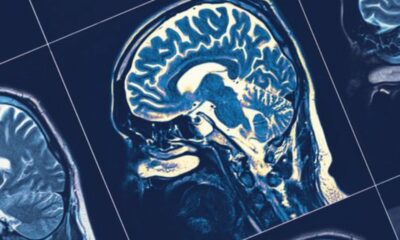Ahmed Tawakol, MD, an investigator and cardiologist in the Cardiovascular Imaging Research Center at Massachusetts General Hospital, and his colleagues examined medical records and other data of 50,359 participants from the Mass General Brigham Biobank who completed a physical activity survey in order to evaluate the mechanisms underlying the benefits of physical activity for cardiovascular disease and psychological disorders.
Measurements of stress-related brain activity and brain imaging tests were also performed on a selection of 774 subjects.
In the course of a 10-year median follow-up, 12.9% of patients experienced cardiovascular disease. Compared to individuals who did not meet these criteria, those who met the recommendations for physical exercise had a 23% decreased chance of acquiring cardiovascular disease.
Higher physical activity levels were also associated with decreased stress-related brain activity in individuals. Remarkably, increases in prefrontal cortex function, a region of the brain linked to executive function (i.e., impulse control and decision making) and known to inhibit brain stress centers, resulted in decreases in stress-related brain activity. Other lifestyle factors and heart disease risk factors were taken into consideration in the analyses.
Furthermore, the cardiovascular benefits of physical activity were largely explained by decreases in brain signals associated with stress.
Adding to this discovery, the researchers discovered that a cohort of 50,359 people showed a significantly higher cardiovascular benefit from exercise compared to those who would be predicted to have higher stress-related brain activity, such as those who had pre-existing depression.
“Among those with depression, physical activity was approximately twice as effective in lowering the risk of cardiovascular disease.” This new finding could be explained by changes in the brain’s stress-related activity, according to research senior author Tawakol.
Prospective research is required to establish causation and find putative mediators. In the interim, medical professionals could explain to patients that exercise may have significant positive impacts on the brain, which could lead to increased cardiovascular advantages in those with stress-related disorders like depression.

 Diabetology2 weeks ago
Diabetology2 weeks ago
 Diabetology1 week ago
Diabetology1 week ago
 Diabetology1 week ago
Diabetology1 week ago
 Diabetology1 week ago
Diabetology1 week ago
 Diabetology1 week ago
Diabetology1 week ago
 Diabetology2 weeks ago
Diabetology2 weeks ago
 Diabetology2 weeks ago
Diabetology2 weeks ago
 Diabetology6 days ago
Diabetology6 days ago

















